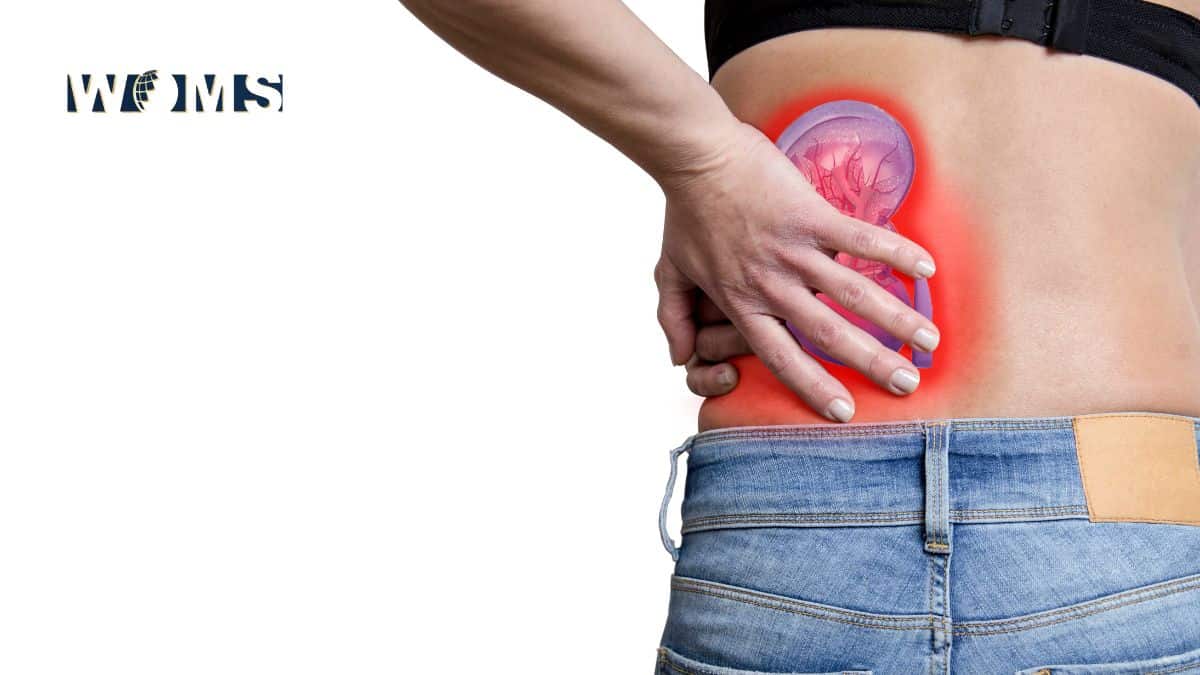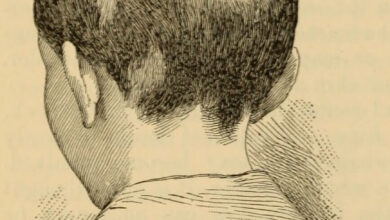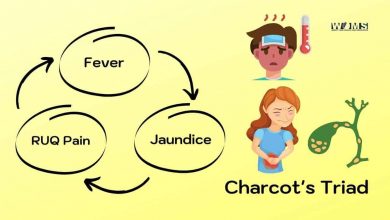What Can Mimic Kidney Stone Pain? Causes and Symptoms

Pain is the most common symptom associated with kidney stones. Kidney stones are the calcified hard deposits of some mineral that are present inside your kidney. Kidney stones are associated with a variety of symptoms to define. But, there are several other diseases that also pose the same symptoms as kidney stones. This article will explore the answer to what can mimic kidney stone pain. We will talk about the specific normal and abnormal symptoms related to kidney stones.
These kidney stones are different in nature according to their chemical composition. Kidney stones can cause severe excruciating pain with different other common symptoms. Before talking about what can mimic kidney stone pain, we must know about the normal physiological mechanism and symptoms associated with kidney stones.
What is the possible mechanism for kidney stone formation?
Our urinary system is totally based on our kidneys. The kidney removes the beneficial ingredient for the ultimate processing of urine. There are some small crystals of calcium, oxalates, and uric acid that are usually removed from the body through urine. But with the excessive intake of these ingredients, these mineral salts continue to deposit in the kidney.
These minerals form bigger crystals and get calcified. In this way, these minerals took the form of kidney stones. These kidney stones are difficult to pass through the urine, causing severe pain. The most common kidney stones are calcium, oxalates, uric acid, and cystine. Knowing this mechanism helps in getting a better understanding on what can mimic kidney stone pain.
What are the common symptoms of kidney stones?
Kidney stone formation does not induce any kind of symptoms. Even stones present in your kidney may not cause any kind of symptom. You may not even feel the presence of kidney stones. If the kidney stone size is very small, it can easily move out from your urinary tract and leave your body through urine without causing any pain. But, if the kidney stone size is large, it may move from your kidney to the ureter, inducing a variety of symptoms. When similar kind of pain occurs via other diseases, it is said to mimic kidney stone pain. So what can mimic kidney stone pain?
Kidney stone symptoms are quite similar to several other medical problems. So, it is important to diagnose the cause of the pain properly. The most common sign and symptoms associated with kidney stones are
- Burning feeling during urination
- Flank pain – pain at the side of the abdomen radiating toward the back
- Increased frequency of urination
- A feeling of urgent urination
- Groin pain
- Nausea and vomiting
- Pain in the testicle area
- Recurrent urinary tract infections
- Blood in the urine
- Cloudy urine with a foul smell
- A smaller amount of urine – larger kidney stones can block the passage of urine
These symptoms can be mild to severe depending on the size of the kidney stone. A kidney stone with classical pain symptoms is referred to as colic. It means that the pain comes and goes. Whereas, kidney stone pain can be continuous and severe, making it difficult to relax in any position.
What can mimic kidney stone pain?
Kidney stone pain is a mimicker because there are several other diseases that exhibit the same kind of pain. For this reason, it is important to investigate the underlying cause of such pain. Here is a list of those diseases that can mimic kidney stone pain. This list brings you with the answer to what can mimic kidney stone pain
Urinary tract infections
Kidney stone pain is also associated with the urinary system. Therefore, the symptoms of urinary tract infection may get confused with kidney stone pain. These are one of the diseases linked with what can mimic kidney stone pain. UTIs induce severe pain in the lower abdomen, bladder, and groin region. In addition, urinary tract infections may also cause cloudy or bloody urine with increased frequency to urinate. If left untreated, the infection may spread to the kidney and ureter, causing serious problems. The infection can spread throughout the body, causing some serious medical problems. There are several other symptoms associated with these urinary tract infections. These are as follows:
- Fever or chills due to infection
- Abdominal pain
- Blood in the urine
- Nausea or vomiting
- Increased urination
- Cloudy urine with a foul smell
- Flank pain
- Pain in the groin area
Infections should be treated immediately because of the increased chances of sepsis. Antibiotics can help to easily recover from infectious agents. Severe infections may need hospitalization to get proper treatment. Thus UTIs are one of the diseases associated with what can mimic kidney stone pain.
Appendicitis
Appendicitis is the infection of the appendix, present in the lower right part of the abdomen. The appendix is a small pocketing associated with the colon. It is a vestigial organ of the body. Food particles or other materials may get impacted the appendix and cause infection. Appendicitis also causes severe pain around your abdomen. It is another infection associated with what can mimic kidney stone pain. Moreover, it moves from one part of the abdomen to the other part. Inflammation of the appendix may get worse leading to some severe symptoms. These are as follows:
- Severe and sudden pain on the right side of the abdomen
- Nausea or vomiting
- Postural changes may worsen the pain
- Loss of appetite
- Fever
- Bloating in the stomach
Some of these symptoms are also associated with kidney stone pain. Therefore, it is quite difficult to assess whether the pain is because of kidney stone pain or appendicitis. So appendicitis is another infection associated with what can mimic kidney stone pain.
Menstrual cramps
Women with a regular menstruation period may suffer from serious menstrual cramps. These menstrual cramps can be misdiagnosed with kidney stone pain. It is another pain associated with what can mimic kidney stone pain. In addition, some women suggest that kidney stone pain is quite similar to ovarian pain, stomach cramps, or pelvic cramping. The main difference between menstrual cramps and kidney stone pain is that the latter causes cloudy or foul-smelling urine with pain in the lower back region. These symptoms are not associated with menstrual cramps.
Less common diseases posing the same symptoms
There are some other diseases which pose the same symptoms as kidney stone pain. Let us look at other diseases associated with what can mimic kidney stone pain.
- Crohn’s Disease
- Diabetes Mellitus
- Viral Hepatitis
- Gastritis
- Viral infections causing fever
- Pelvic inflammatory diseases
- Amenorrhea
- Prostatitis
- Diarrhea
- Food poisoning
- Peptic ulcer
- Ulcerative colitis
What are the common causes of kidney stones?
Now that we know what can mimic kidney stone pain, let’s also look at the common causes of kidney stone formation. There are multiple causes of kidney stone formation. It is not usually associated with a single cause but a combination of different causes to induce kidney stone formation.
You can also get information on Acute Kidney Injury(AKI).
These causes can be environmental, genetic, dietary, or maybe of some other medical origin. Let us have a detailed look at the general causes of kidney stone formation.
- Increased intake of calcium supplements or a diet containing excessive calcium-associated ingredients
- Dehydration – decreased water intake can cause stones to stay in the kidney rather than pass with urine
- Diabetes
- Diseases that can cause metabolic acidosis
- Medications like topiramate or furosemide
- Familial history of kidney stone formation – it is more common in the case of cysteine kind of kidney stone formation
- Gastric bypass surgery
- Gastrointestinal diseases like ulcerative colitis or Crohn’s disease
- Hyperparathyroidism
- Residing in such geographical lands that have a high incidence to produce kidney stones
- Sarcoidosis
For how long, does kidney stone pain last?
Kidney stone pain is usually known as renal colic. The pain resolves as soon as the stone passes with the urine. It totally depends on the size and location of the kidney stone. Kidney stones that are usually smaller than 4mm can easily pass with urine within one or two weeks. In contrast to this, larger stones may take two to three weeks to pass with the urine due to their larger size.
You feel pain when the kidney stone moves into the ureter. This is true if the kidney stones are large enough to block the urinary outflow and cause infection. Once the kidney stone has reached the level of your bladder, the kidney stones are easily excreted within a few days. For older people, it may take more time than normal. This was some more details on kidney stone pain besides what can mimic kidney stone pain.
How can we diagnose kidney stones?
If you are having all the above-mentioned symptoms, you must visit your doctor. If you are having blood in your urine, your doctor may ask you for blood and urine tests to assess for any other possible problem. In addition, your doctor may suggest you undergo different imaging tests. These imaging tests will help to determine the location, shape, size, and number of kidney stones. These imaging tests are the most effective tests to diagnose kidney stones.
By following proper diagnostic techniques, your doctor may be able to assess every possible problem associated with your pain. Kidney stone pain is similar to several other medical problems. So, it is necessary to get properly checked to reach the main cause. The earlier you get diagnosed, the earlier you get treated. This also helps to differentiate whether the pain is due to kidney stone or some other diseases. It’s diagnosis is thus important while knowing about what can mimic kidney stone pain.
How can we get relief from kidney stone pain?
Kidney stone pain may vary from person to person. Some people suffer so severely that they need to go for emergency medical care. Mostly, a single dose of medication prescribed by your doctor is sufficient to relieve the pain.
There are also medications available that relax the muscles of the ureter so that the kidney stone can easily pass with urine. Such medications also help to relieve the pain by removing kidney stones. In addition, if the size of kidney stones is small, your doctor may suggest a simple painkiller. Painkillers will relieve the pain until the kidney stone passes with the urine.
If the size of your kidney stone is quite large, your doctor may suggest lithotripsy for the treatment of your kidney stones. Lithotripsy uses sound waves to break the larger stones into smaller ones to pass easily with the urine.
You can also check this detailed article on How to prevent Kidney Stones?
By following the above treatment protocols, if your pain is consistent, consult your doctor immediately to get diagnosed with the main cause. Because there are several other medical problems that can mimic kidney stone pain. Most of the diseases associated with what can mimic kidney stone pain, we have already talked about.
Conclusion
Kidney stones affect about 10% of the U.S population, which is increasing day by day. It results in severe kidney pain or flank pain that may last for days even if the kidney stone passes by itself. If the kidney stone size is larger and does not pass with the urine, visit your doctor immediately to get treated as soon as possible. Kidney stone pain is a mimicker because of its similarity with multiple other medical problems. This article described all important facts regarding what can mimic kidney stone pain.
There are several other serious medical problems that may pose the same pain. But, if you don’t bother about them, they may raise serious medical concerns. So, it is better to consult your doctor rather than wait for the pain to heal itself.
Frequently asked questions (FAQs)
What are the basic home remedies to get relief from kidney stone pain?
The most common home remedy for kidney stone pain is to take more water than usual. The more you drink water, the more the chance of passing kidney stones with urine. In addition, there are also some other remedies to deal with kidney stone pain. These are as follows:
● Lemon juice in water
● Basil juice
● Apple cider vinegar
● Kidney bean broth
When there is a need to visit a doctor?
Kidney stone formation is not painful at all. You feel pain only when the stone moves from one place to another. During this phase, you may feel too intense pain to bear. When you feel pain like this, rush to your doctor immediately for the proper diagnosis and treatment.




